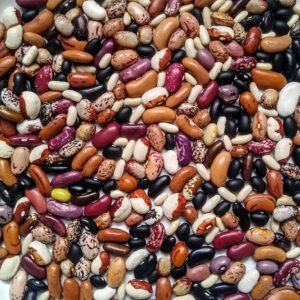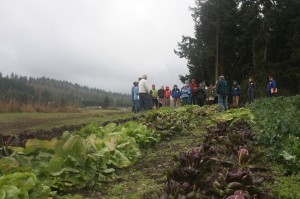
 Port Townsend, WA – Organic Seed Alliance (OSA) will deliver five trainings this fall to help vegetable growers mitigate climatic risks in Northwest seed production. Trainings will begin in September, and will serve growers in Idaho, Oregon, and Washington.
Port Townsend, WA – Organic Seed Alliance (OSA) will deliver five trainings this fall to help vegetable growers mitigate climatic risks in Northwest seed production. Trainings will begin in September, and will serve growers in Idaho, Oregon, and Washington.
Thanks to support from the U.S. Department of Agriculture’s Risk Management Agency (RMA), OSA will soon release a new publication, titled: Climatic Considerations in Organic and Specialty Seed Production in the Northwest. The guide will form the basis for the on-farm trainings and be made available in both English and Spanish.
The Northwest region contains some of the best seed producing areas in the world. In 2009, there were 27,000 acres in vegetable seed production in Idaho, Washington, and Oregon combined, representing about 80% of the total vegetable seed acreage in the U.S. and valued at over $50 million. The growing organic seed market presents an excellent opportunity for organic farmers to diversify into seed production.
Seed production requires specialized skills and knowledge to produce quality seed of specific crops. Understanding local environmental conditions and their impact on the feasibility of quality seed production is critical to a seed producer’s success. In any given climatic region there are certain crops and cultivars that are best suited to the environmental conditions.
The new publication and on-farm trainings will provide growers an understanding of climatic challenges in their region and how to mitigate these challenges through risk management strategies. Growers will also learn which crops are best suited to their local climate.
Scheduled trainings include:
• September 11th at Canyon Bounty Farm in Nampa, Idaho
• September 17th at Adaptive Seeds in Sweet Home, Oregon
• September 19th at Ayers Creek Farm in Gales Creek, Oregon
• September 26th at Cloudview Eco-Farm in Royal City, Washington
• October 19th at Washington State University in Mt. Vernon, Washington
A Spanish translator will be available at the Mt. Vernon, Washington, event. Training details will be announced soon and pre-registration will be required. Visit OSA’s website for ongoing updates at www.seedalliance.org.
